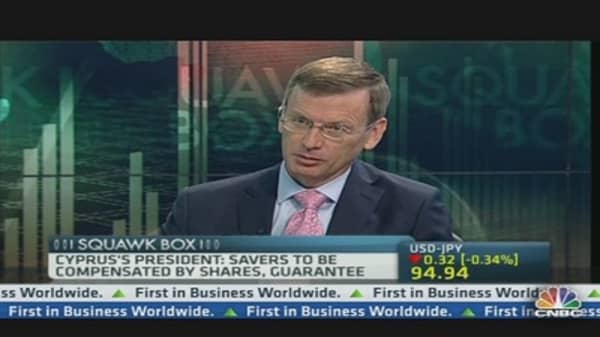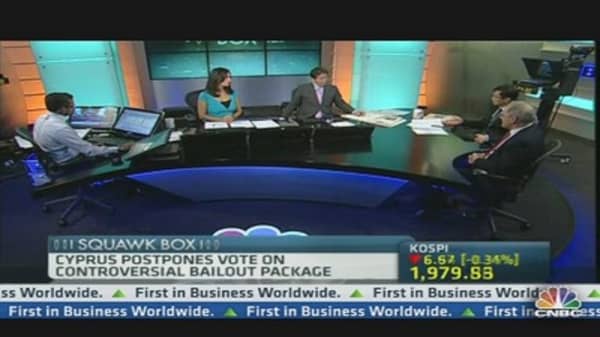Even as Cyprus's President Nicos Anastasiades addressed the nation on Sunday night, saying savers would be compensated by shares in banks guaranteed by future natural gas revenues, he was said to be working to renegotiate terms of the highly criticized bailout deal.
Over the weekend, analysts warned the decision by the euro zone to force bank depositors in Cyprus to contribute towards a bailout—a first in the euro zone debt crisis—could hurt other peripheral nations, the euro and the global stock market rally.
That warning appeared to be coming true as the euro tumbled on Monday, falling below $1.29 in Asia trade to its lowest level this year. Asian equity markets were also deeply in the red as jitters over the Cyprus bailout dealt risk appetite a blow.
(Read More: Cyprus Bailout Crisis Slams Brakes on Risk-On)
In his televised address, Anastasiades said he had to accept a tax on bank deposits in return for international aid, or else the island would have faced bankruptcy.
"The solution we concluded upon is not what we wanted, but is the least painful under the circumstances," Anastasiades said.






